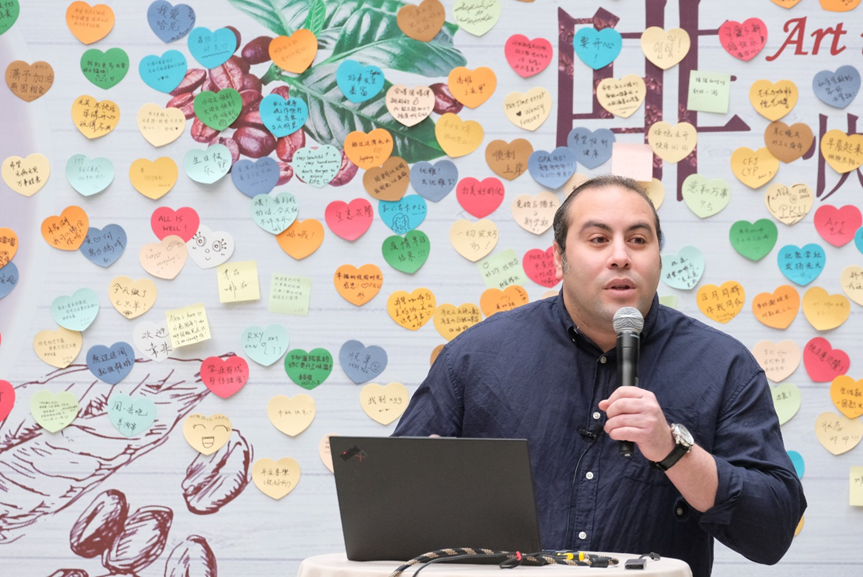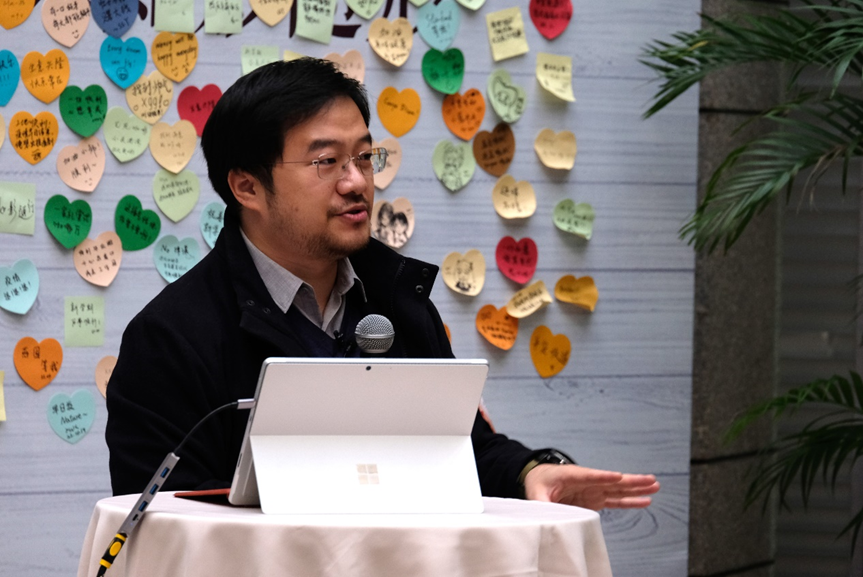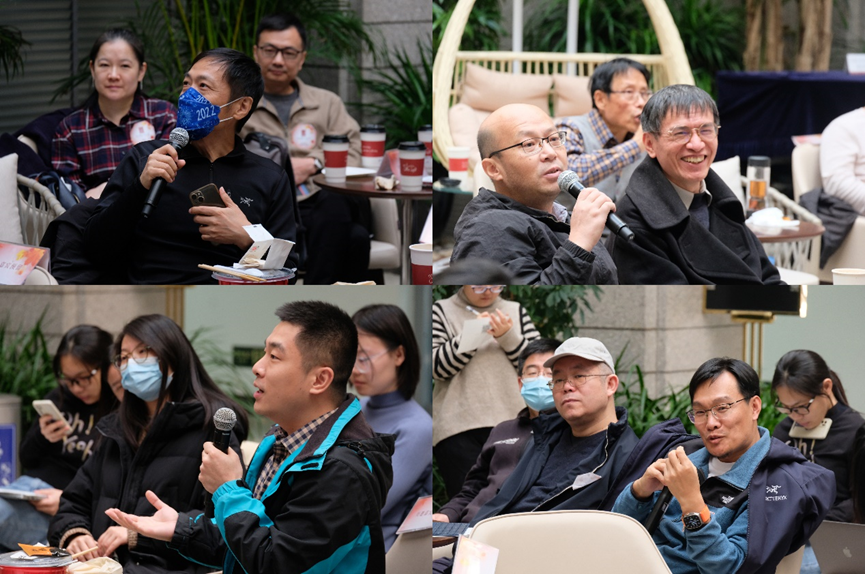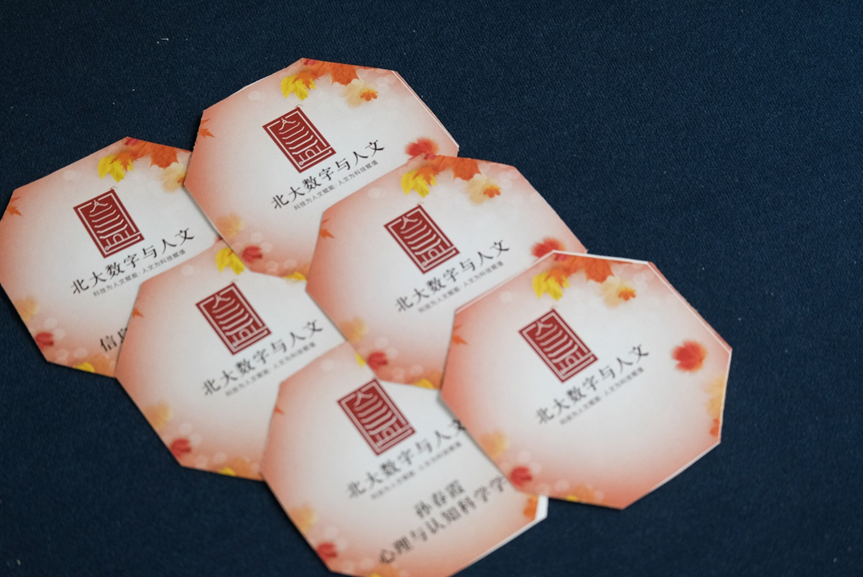Peking University, November 17, 2022: PKU School of Humanities and Social Sciences held the “Seasonal Salon (Start of Winter)” in the Peking University Hall Art Café recently, which was the last of the four “Seasonal Salons,” following the Autumnal Equinox, Cold Dew and Frost’s Descent, as part of the PKU “Digital and Humanities Special Support Program.”
Alaa Mamdouh Akef, assistant professor at the School of Foreign Languages Department of Arabic Language and Culture, and Cheng Mo, assistant professor at the School of Foreign Languages Department of Italian Language, co-delivered a keynote speech entitled “From Dante to Mahfouz: Foreign Languages & Literature Research in light of Digital Humanities.” The activity was hosted by Guo Lin, Vice Director of the School of Humanities and Social Sciences.
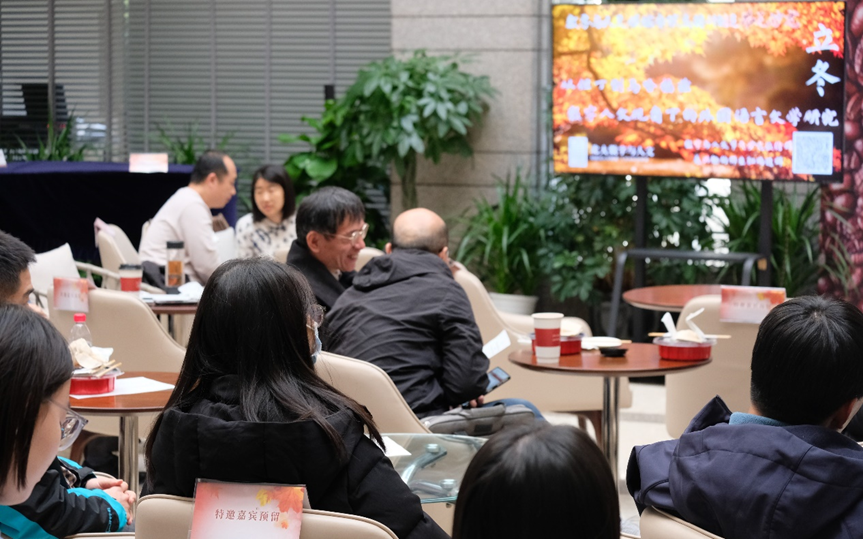
Based on their own teaching and research needs, the two speakers built a corpus analysis platform for representative literary works from their respective language of study. The platform helps to visualize and mine the digitalized literary works for them to be incorporated into the corpus. They then introduced case studies of how corpus linguistic concepts have been applied to the fields of literature, psychology, and history, helping foreign language students and literature readers understand the connotations and connections between texts, literature, and culture, and how artificial intelligence plays a role in connecting them.
Akef shared about how he constructed a data visualization platform for humanities research of the collected works of Najib Mahfouz to explore data-supported literary teaching solutions. He was able to use the conceptual approach of data narrative and Arabic natural language processing techniques to delineate the different levels of information in the novels, such as the relationships between the characters and emotional analysis. Through this, Akef was able to transform the traditional way of teaching Arabic literature and ignite the academic interests of students.
Alaa Mamdouh Akef delivering his presentation
From the user and developer’s perspectives, Cheng Mo shared his experiences of using digital humanities tools such as artificial intelligence (AI) translators and self-programmed teaching aids in foreign language teaching. He highlighted that there were still various challenges facing AI translation, especially the incompatibility of translations with the linguistic characteristics of poetry and the inability to capture the imagery depicted in the texts and the emotions they were intended to convey. Cheng then introduced various data platforms currently available for the study of Italian poetry when it came to Italian poetry, as well as a short poetry text analysis program that he was currently working on to explore the optimization of digital humanities tools.
Cheng Mo delivering his presentation
After the keynote speech, the participants engaged in dialogue with Cheng and Akef about their research results and shared constructive and innovative viewpoints from their own academic disciplines. Computer science experts, Zhao Dongyan and Ma Yun, shared that computing technologies can improve foreign language teaching methods such as by providing new programs for the translation, retrieval, research and creation of literary texts. Chen Baoya, professor at the Department of Chinese Linguistic and Literature, proposed expanding the direction of literary research by conducting comparative studies of societies of different countries and eras and their language learning patterns, so as to expand the database for digital research in the future.
Experts exchanging ideas
During the salon, the participating teachers and students were actively engaged in meaningful dialogue about how digital humanities and foreign language teaching can be integrated in the future as part of promoting interdisciplinary research. As a bridge between the humanities and science disciplines, the School of Humanities and Social Sciences will continue to work towards creating more room for intersections between the arts and sciences.
Written by: Zhou Siyan
Edited by: Su Huangyi
Source: PKU News (
Chinese)


